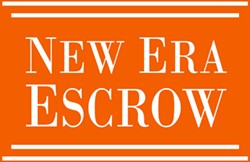
Table of Contents
ToggleEscrow vs Earnest Money: 5 Best Ways Both Will Work
You want to build your dream home, but there’s a pile of confusing paperwork, and you’ve been hearing terms like “escrow vs earnest money.” Let’s break it down: Escrow and Earnest Money are key factors in home buying, and we’ll show you how they team up to make your dream home a reality.
Are you confused by terms like "escrow vs earnest money?" We'll break it down and show you how they make your dream home a reality. Get your copy of "The Psychology of Money" to know the secrets to home buying!
Escrow vs Earnest Money: What is Escrow?
Escrow keeps your important stuff safe until a deal is finished. In real estate, your cash or important papers are often valuable. When you want to buy a house, you put your earnest money into an escrow account. It’s like a super-safe locker that guarantees your money is secure while everything gets sorted out.
Escrow vs Earnest Money: What is Earnest Money?
Now, let’s talk about earnest money in the context of escrow vs earnest money . It’s like a friendly gesture to the seller, showing you’re interested in their house. Consider it a small investment, like saying, “I’m serious!” It usually ranges from 1-3% of the home’s price. If the deal works out, this cash can help with your down payment or closing expenses.
How They Work Together:
Although there are many escrow vs earnest money situations, both escrow and earnest money ensure fairness in real estate deals. Here’s their action plan:
1. Offer Acceptance: To highlight the difference between escrow vs earnest money , imagine you spot your dream home and make an offer. To prove your commitment, you add earnest money to your offer. This cash goes into an escrow account.
2. Decision Time: The seller checks your offer. If they say yes, your earnest money stays in escrow, demonstrating the interplay of escrow vs earnest money . If they decline, you get your money back. It’s that simple!
3. Property Check and Plan: You’ll get time to check the property and handle any issues, like repairs or financing. Your deposit is kept safe during this time.
4. Finalizing the Deal: If all goes well, we move to the closing stage, where the interaction between escrow vs earnest money becomes crucial. Your deposit might cover part of your down payment or closing expenses. The rest goes to the seller.

5. Backing Out or Disagreement: If the deal falls apart for valid reasons, in situations involving escrow vs earnest money , your deposit stays in a secure account until both sides agree on what happens next. This keeps things fair for everyone involved.
Achieve lasting success with “The 7 Habits of Highly Effective People.” Like your secure escrow account, these habits ensure fairness, trust, and agreement in your life.
Closing the deal is the huge moment when you officially become the owner of your new home. It’s when all the money stuff, including the handling of escrow vs earnest money , gets sorted out. Escrow ensures everything goes smoothly and safely; earnest money shows you’re serious about buying.
Much like the inspiring journey in ‘Shoe Dog‘ by Phil Knight, closing the deal on your new home signifies your dedication and commitment. As earnest money shows your seriousness about buying, escrow ensures a smooth, secure transition.
Escrow vs Earnest Money might sound complicated, but they’re the important factors in your home-buying process. Escrow keeps your money safe, and earnest money shows you mean business. So, when you’re ready to buy a home, remember escrow and earnest money – they’ll be with you every step of the way.
Learn the essentials of escrow vs earnest money, ensuring a smooth home-buying journey. Watch “Real Estate Inventory for Beginners” now to sell fast!
Disclosure: This article contains affiliate links. Clicking on these links and buying these products may result in us receiving a commission at no additional cost.
Takeaways:
- Escrow safeguards your money and important documents until a real estate deal is finalized. Earnest money is a gesture of good faith to the seller, signifying your serious interest in their property, typically ranging from 1-3% of the home’s price.
- Your earnest money is placed in an escrow account when making an offer on your dream home, demonstrating your commitment.
- During the home buying, escrow and earnest money provide security and structure, including property inspection and finalizing the deal.
- Remember that escrow and earnest money are essential elements in your home-buying journey, ensuring your money’s safety and showcasing your determination to purchase your dream home.
- Chen, J. (2023). Earnest Money: What it is and how much it is in real estate. Investopedia.
- Earnest money & Escrow real estate. (2017, March 6). www.nar.realtor.
- Johnsen, W. (n.d.). Who is Earnest and What is Escrow. . .and Why Do They Need My MOney? www.linkedin.com.
- Navigating escrow and earnest money in business transactions. (2023, August 23).
